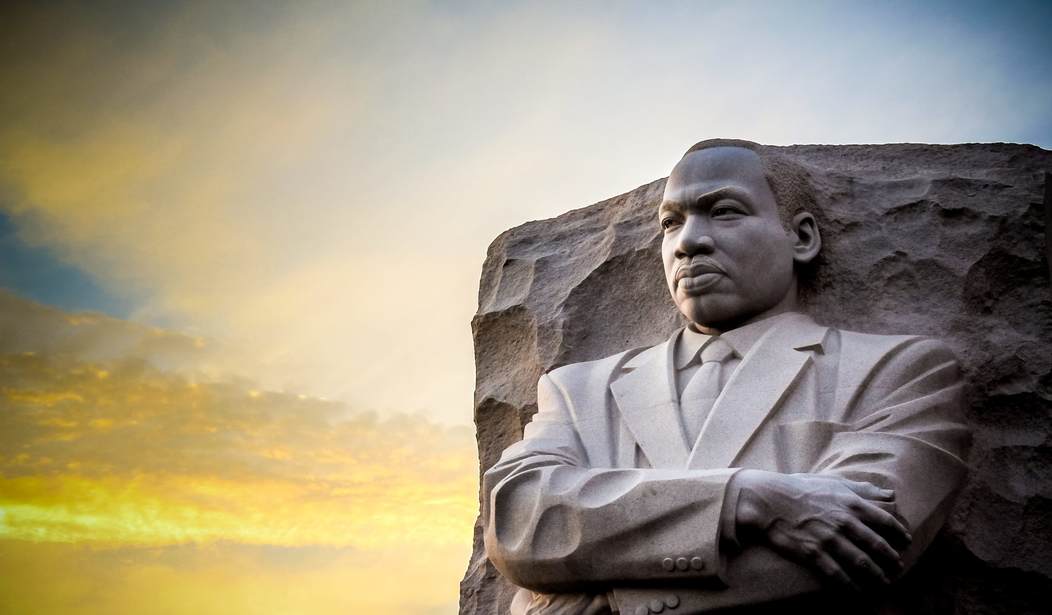In the conference room of a suburban coffee shop, I recently met with five fellow conservatives – two college students, their professor, a state senator, and a Polynesian businesswoman. We discussed the intersection of race and politics. The students attend Concordia College, a private Lutheran institution. Each works in an urban environment dealing directly with at-risk populations. They sought perspective from established minority voices within the Republican Party. In this instance, I was to be one such voice. The Polynesian businesswoman was to be another. The following are their questions and our answers, paraphrased.
How would you describe this moment in race relations? What is happening in our country, and what do you perceive as the problem?
That’s a broad question. The chief problem is that people have retreated into social enclaves and refuse to understand, or even acknowledge, alternative perspectives. Republicans, in particular Caucasian Republicans, have a preferred sense of what the problems in minority communities are and how to fix them. There’s little interest in listening to what the people in those communities have to say for themselves, letting them define their own problems, and then crafting solutions based on conservative principles. It’s easier to simplify the issue and attribute difficulties to weak families, poor work ethic, or an otherwise subpar culture.
Why do policies intended to help minorities and those in need seem to be so ineffective? (This question was accompanied by an anecdote from the professor about his work with the homeless, noting that policy-makers never talk to the homeless to discover what they actually need.)
That’s because policies presented to help the homeless are not actually about helping the homeless. They’re about making suburban voters and urban hipsters feel good about themselves for supporting policies intended to help the homeless. The Left elevates intention above outcome. They sell and evaluate their policies based on intention. Outcome is beside the point.
Consider MNSure [our state health insurance exchange] and Obamacare as examples. These programs have performed 180 degrees opposite of what each advertised. Insurance is more expensive. Care is more scarce. People have lost their coverage or lost their preferred doctor. It’s been a disaster by every metric. But it’s intended to help people. So that makes it okay.
Another issue which bears this out is gun control. A while back, The New York Times published a front-page editorial for the first time in decades. It called for draconian regulation of firearms, including the confiscation of certain weapons. In the piece, the editorial board acknowledged that similar policies in other countries had no effect on gun violence. Yet they advocated for the United States to adopt the policies anyway because “at least they’re trying.” They literally said that the intention was more important than the outcome. That’s where we’re at as a culture.
Have you personally experienced racial bigotry? If so, what form has it taken?
Certainly, people react to appearance with presumptions and bias. A store clerk may treat us differently based on their assumptions about who we are.
Of course, that works the other way too. Others of similar racial background may presume that we have things in common which we do not, based on nothing but skin color and physical appearance.
In my case, being biracial and growing up in a predominately white community, I have taken on the culture in which I was raised. It’s an imperfect analogy but, with The Jungle Book out in theaters, it’s like Mowgli being raised by wolves. If you’re raised by wolves for long enough, eventually they come to regard you as a wolf and you regard yourself as a wolf, even though you’re really a man-cub. In a similar sense, I am culturally Caucasian but physically regarded as black. So, on the one hand, I get the presumptions from whites about how my blackness defines me. But I also get that from other blacks.
I’ll be walking down the street and see a black guy, and he’ll toss me a nod and shout out a “what’s up, brother.” My response is to look at him and think, “What. Is. Up? I honestly don’t know.” He’s assuming this shared cultural experience that I haven’t actually had. That’s just as much prejudicial as when the bias comes from whites.
Which party, Republican or Democrat, does a better job addressing the actual needs of minority groups?
They both fail, albeit for opposite reasons. As aforementioned, Democrats tend to elevate intention to the exclusion of outcome. Conversely, Republicans do a great job focusing on outcome, but harbor little to no authentic intention.
(At this point the professor drew an illustration of overlapping circles, suggesting that each party had a piece of the necessary solutions, if only they could come together.)
That’s absolutely true. Among activists and operatives, there is a small group from each party that understands the bipartisan nature of the legislative process. But acknowledging that nature to either party’s base is political suicide.
There’s this narrative that both parties forward among their stakeholders that, in order to get anything done, you must first win legislative majorities, win the executive, then stack the judicial branch with friendly justices. Essentially, the narrative is that you must have complete one-party dominance to advance your agenda. But that’s ridiculous. First of all, it almost never happens. Rarely is one party in control of any given level of government. When it does happen, it usually doesn’t last for long. More importantly, lasting policy requires buy-in from across the political spectrum. Recent overreach like Obamacare notwithstanding, most large shifts in public policy earn support from both parties before getting signed into law.
Among the problems is the fact that neither party wants the other to get any credit for solving anything. So even when there’s a viable solution on the table, if it can’t be used to advance political campaigns, it probably won’t get much traction.
Would Republicans be open to attending a forum where minority groups expressed their concerns about public policy? Would they listen to those concerns?
Again, the conventional impulse of most Republican leaders today would be to preach and lecture rather than listen and learn. There are a number of reasons for that.
First, as aforementioned, there’s the sense among conventional Republicans that the problems in minority communities fit into neat little categories, like family and work ethic. These assumptions prove attractive, because they place blame squarely on the communities themselves and preclude any changes to the status quo. It’s a perspective that allows Republicans to rest comfortably in established institutions and pretend that there is no work to be done.
The second problem is political inertia. For anything to get done in public policy, there has to be some inciting incident, some motivation to push or pull people to a given position. In the absence of that, the safest thing for a politician to do is absolutely nothing. Doing nothing risks nothing. Stepping outside the base to develop new constituencies risks much. There is no guarantee of gain, and a significant possibility of alienating existing supporters. So why do it?
The answer, of course, is that we’re facing a demographic time bomb. Sooner or later, to remain viable, the Republican Party will have to appeal beyond its predominantly white base.
The third and perhaps most significant barrier to progress is the tendency of Caucasian Republicans to profess colorblindness and insist that race should not matter in modern society. On its face, this may seem like a reasonable position. After all, Martin Luther King did dream of a world where his children would be judged “not by the color of their skin, but by the content of their character.” But the thing with dreams is, they don’t reflect the current reality. A dream can serve as the foundation for a goal, but does not provide the process for getting there.
This is where the “white privilege” narrative rests on some underlying truth. For a white person in America, it is easy to ignore race. It’s not so easy for minorities, because race has defined much of their experience. Colorblindness may be an appropriate goal. But we can’t get there as a society by ignoring the impact which color has had on individual lives and entire communities.
Given this disconnect with minority communities, how can Republicans go about bringing them on board with their proposed policy solutions?
Experience has shown us how not to do it. A while back, at the height of protests across the nation regarding the treatment of blacks by the criminal justice system, an education advocacy group called Better Ed launched a campaign to promote school choice. They sent out mailers to households in the Twin Cities that included the hashtag “#BlackLivesMatter.” Turns out, Better Ed is an organization directed and staffed entirely by whites. When observers connected the dots, they accused Better Ed of appropriating the Black Lives Matter brand.
The organization’s president, Devin Foley, went on the radio and offered an eloquent and wholly rational explanation of how school choice would provide ample opportunity to the black community. His case was ironclad. But it’s doubtful that he convinced any blacks listening that day, assuming that any who hadn’t already been convinced were listening.
The thing is, there are many blacks who love the idea of school choice. In fact, it was later revealed that some of Better Ed’s harshest critics from the Black Lives Matter movement had been associated with efforts to advance school choice. Presented outside the context of a “conservative organization,” these ideas make sense to people. But you have to lead them to it in such a way that it becomes their idea. They have to own it. You can’t shove it down their throats.
Minorities, like any people, are not going to be won over by a lecture. Nobody likes being told what they ought to think or do. Instead, you get to know their worldview, come to understand their perspective, identify their values, and guide them from that to solutions they embrace as their own. That’s how any relationship works in a free society. You have to persuade. It’s salesmanship. No one was ever lectured into buying a car.









Join the conversation as a VIP Member